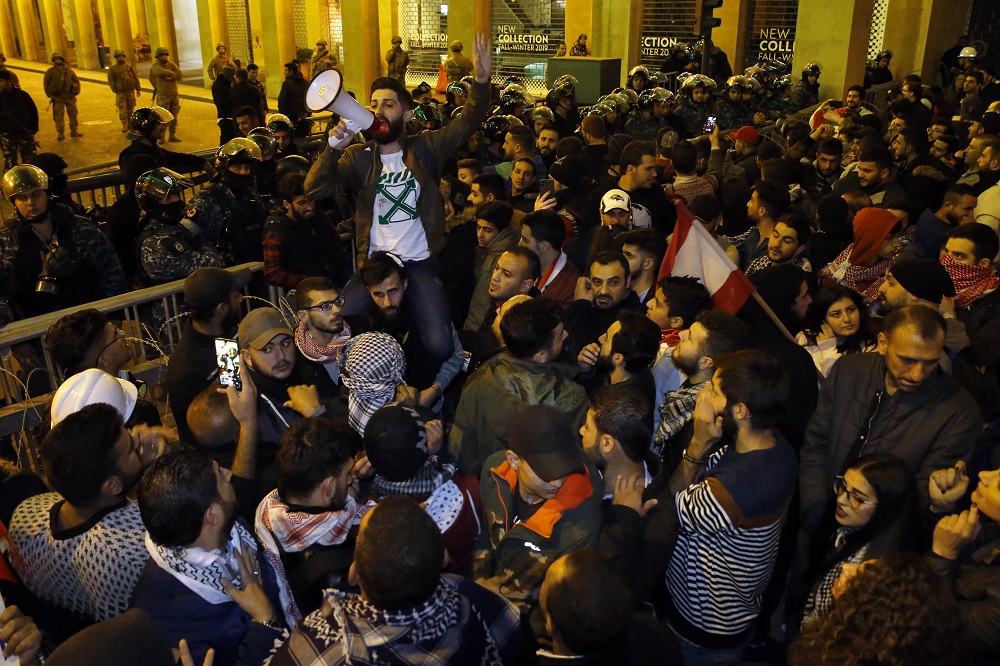Mass protests turning Beirut's vibrant heart into a ghost town
China Daily | Updated: 2019-12-27 09:51

BEIRUT-More than 10 years ago, Beirut's downtown was one of the city's most attractive areas visited by tourists and locals throughout the year for its popular restaurants and shops.
People would even stand for hours to wait for a table at some of the renowned restaurants and cafes.
The high demand for premises by people aiming to open businesses in Riad El Solh and Nejme Square led to a spike in rents.
However, a decade later, an economic slowdown in the country has turned Beirut's downtown into a ghost town, with many of the shops shutting down while others struggle to make ends meet.
The protests that have taken place since Oct 17 exacerbated the challenges facing shop owners in this part of the city.
"Our sales dropped by over 90 percent since the beginning of the protests over two months ago," said a woman who works at a clothes shop in central Beirut.
She said her shop closed for most time during the protests due to the violence.
Protests in Beirut's downtown started in a peaceful manner on Oct 17 but over a month they turned violent with clashes taking place among protesters, political parties and the Lebanese army. Many roads leading to the heart of the downtown area were blocked.
"If the situation remains the same in the coming month or two, we will probably shut down because we cannot even cover our expenses," said the woman, who declined to be named.
Yehya Sabbagh, who owns a mobile phone shop in downtown Beirut, said he wouldn't have been able to keep his store opened if he hadn't already paid for his rent at the beginning of this year.
"I think we may have to close in a few months if the protests continue," he said.
Before the protests, shops in Beirut's center were under pressure from the economic slowdown, intense competition and the falling purchasing power of Lebanese, said Adnan Rammal, a representative of the trade sector on the country's Economic and Social Council.
"However, some shops in the downtown area were impacted by the protests and they have closed as a result of these demonstrations, especially when it comes to pubs and cafes in Uruguay Street," Rammal said.
Rammal said that shops and cafes in Beirut's souks, or old markets, have also been affected by the protests and are rarely visited these days.
However, political analyst Youssef Diab blames the economic slide on the failing policies of successive governments.
"The country has reached this level of deterioration due to the policies adopted by Lebanese officials and not because of the protests that took place in the past two months. We are paying the price for wrong political decisions, which led to an economic slowdown," Diab said.
The Lebanese are concerned over a lack of financial support by the international community, including other Arab countries, which they have relied on in the past.
Xinhua
























